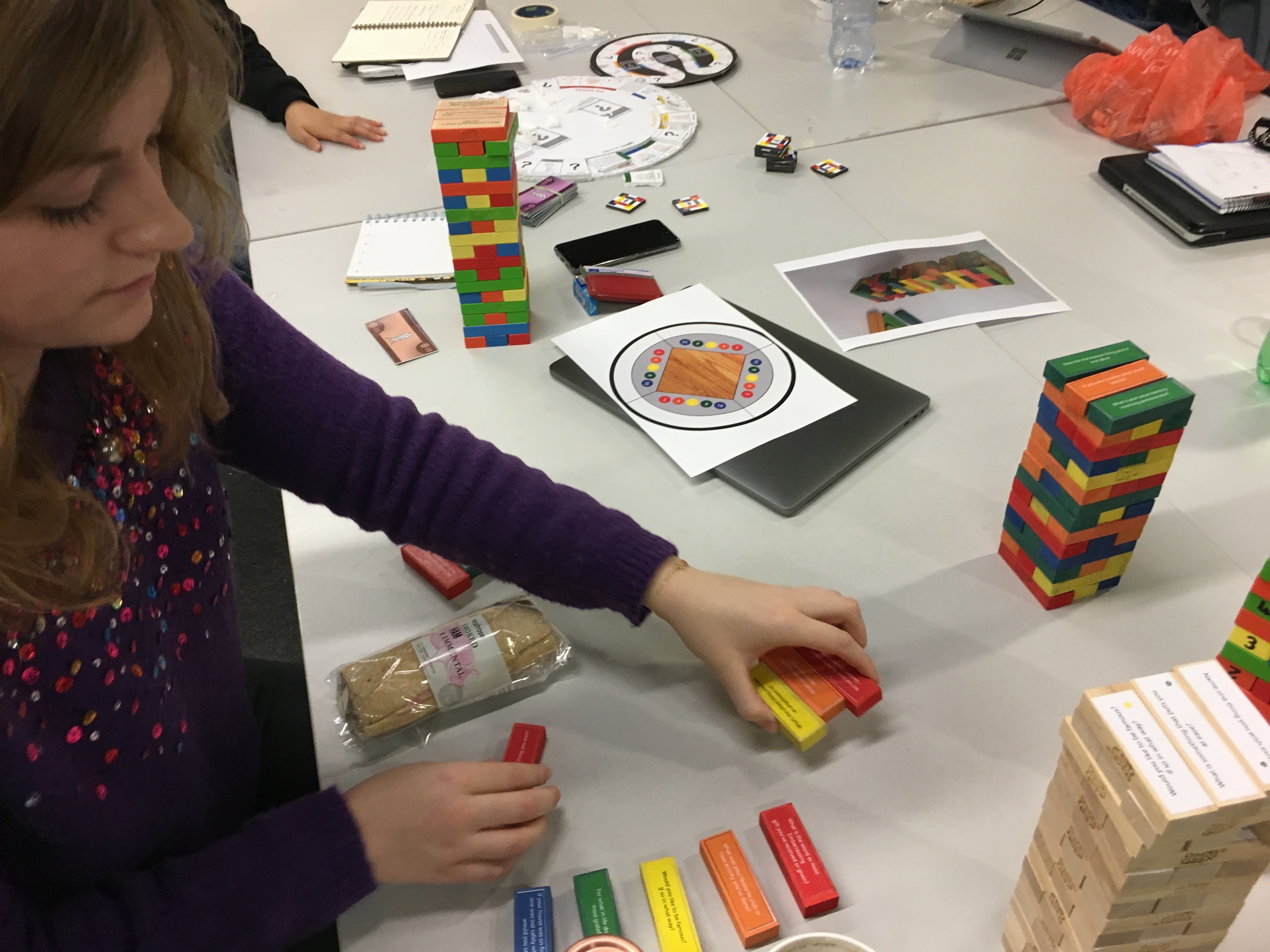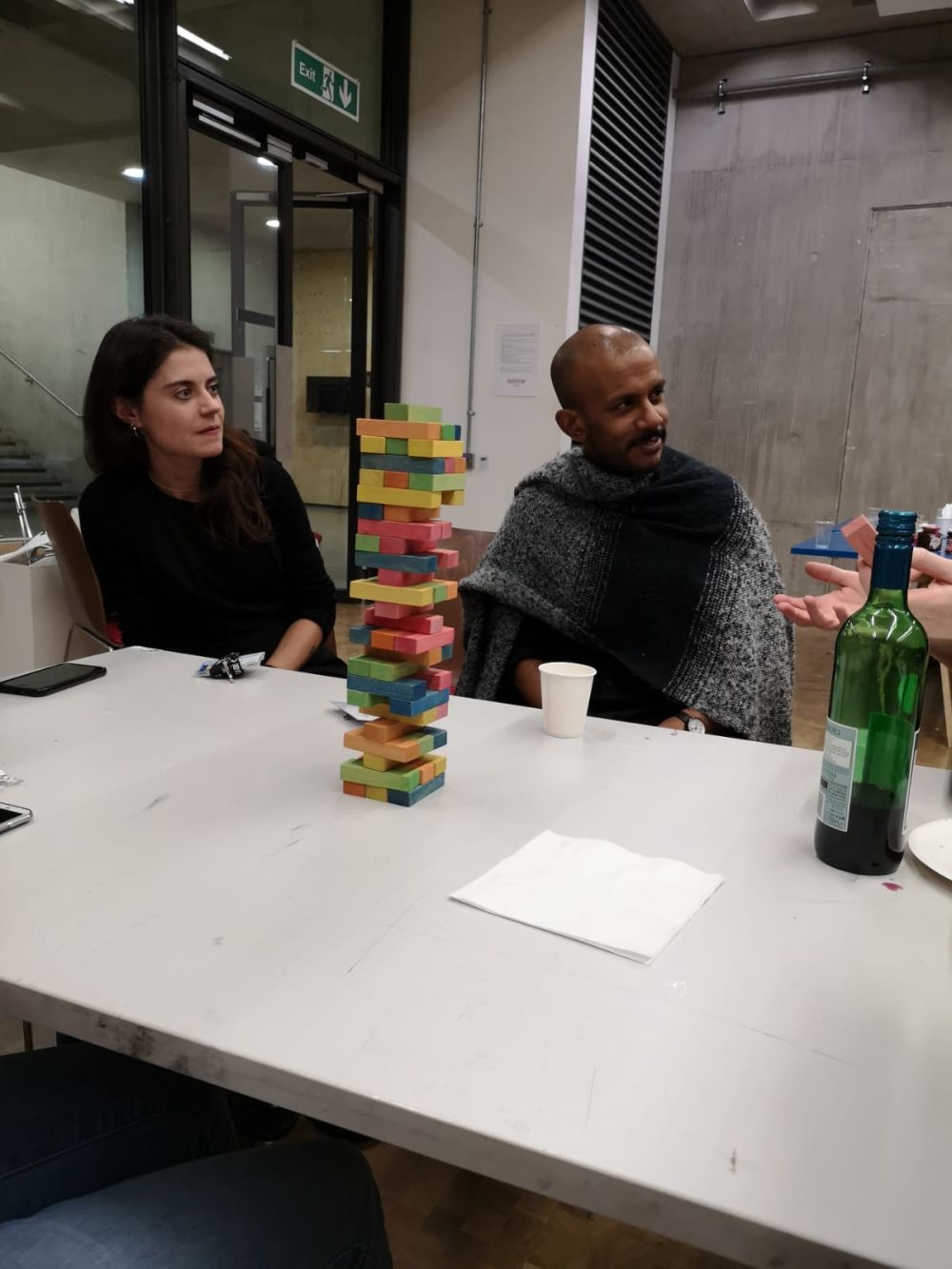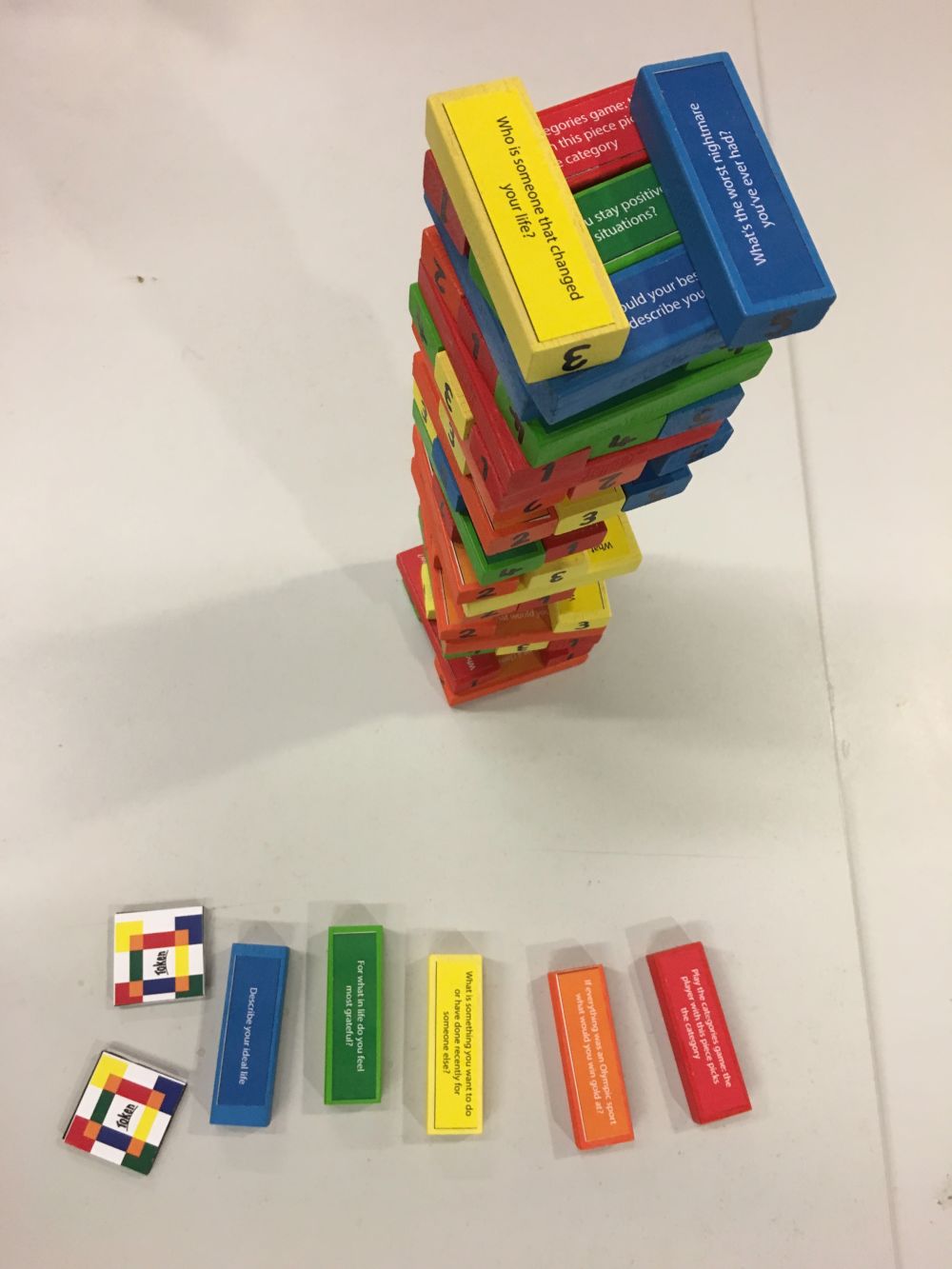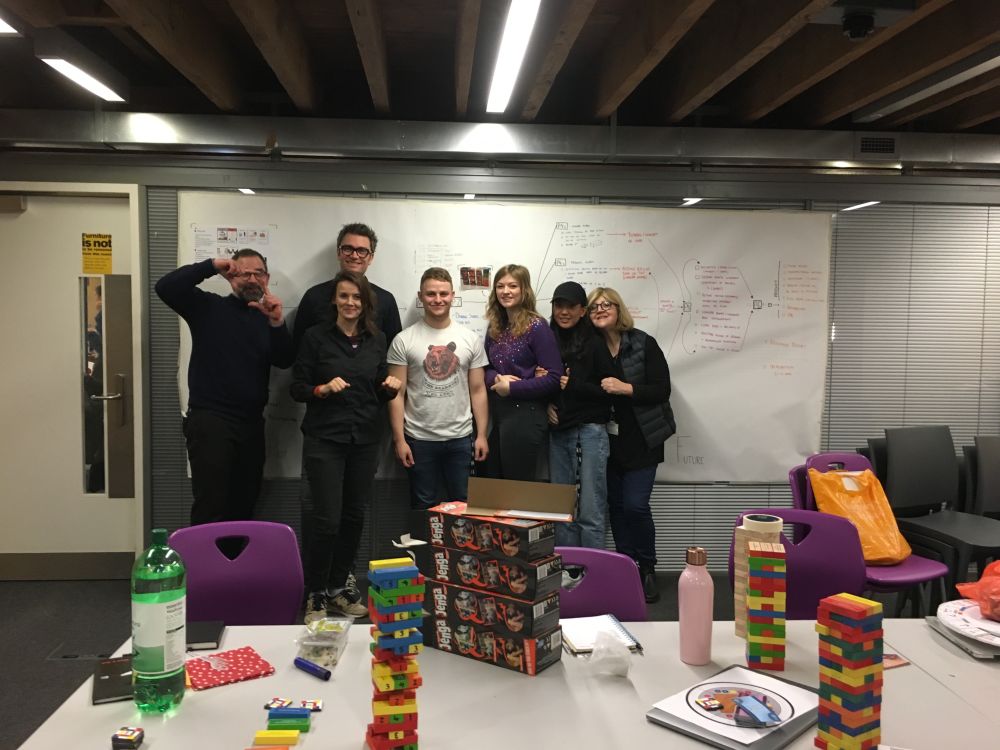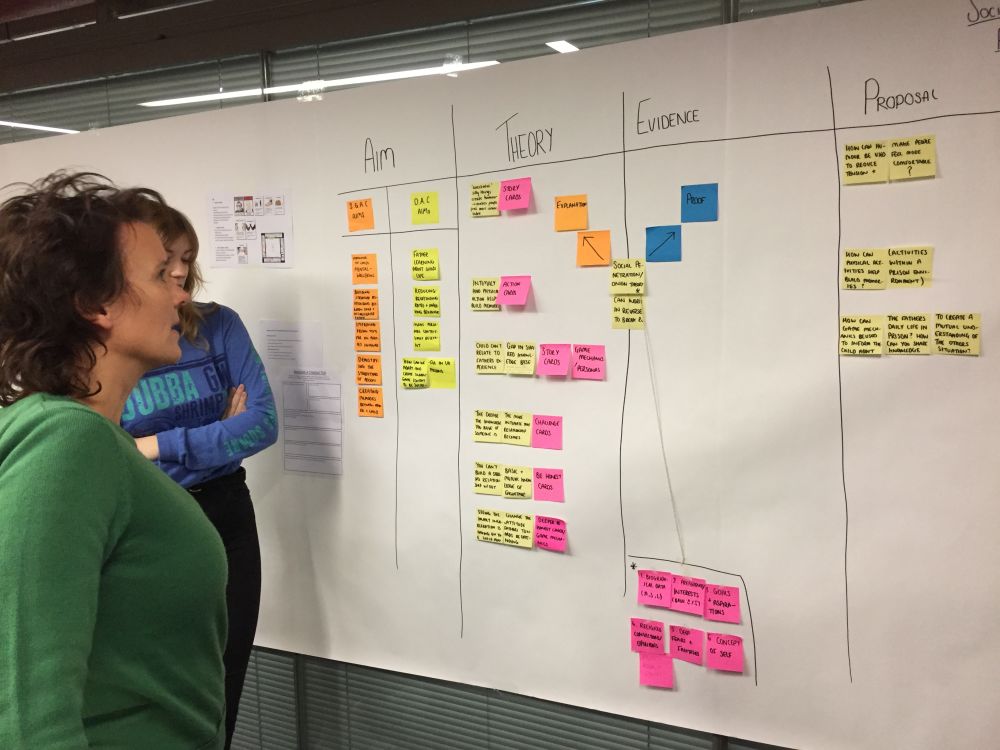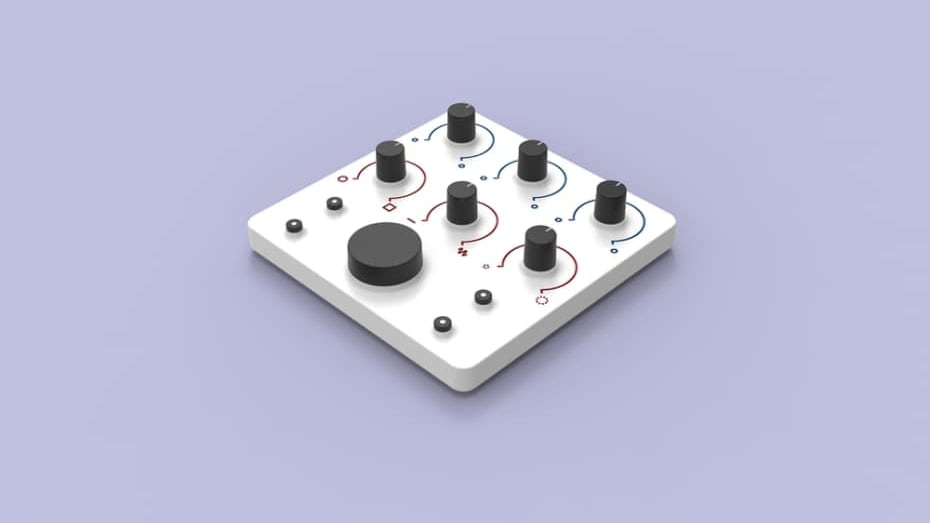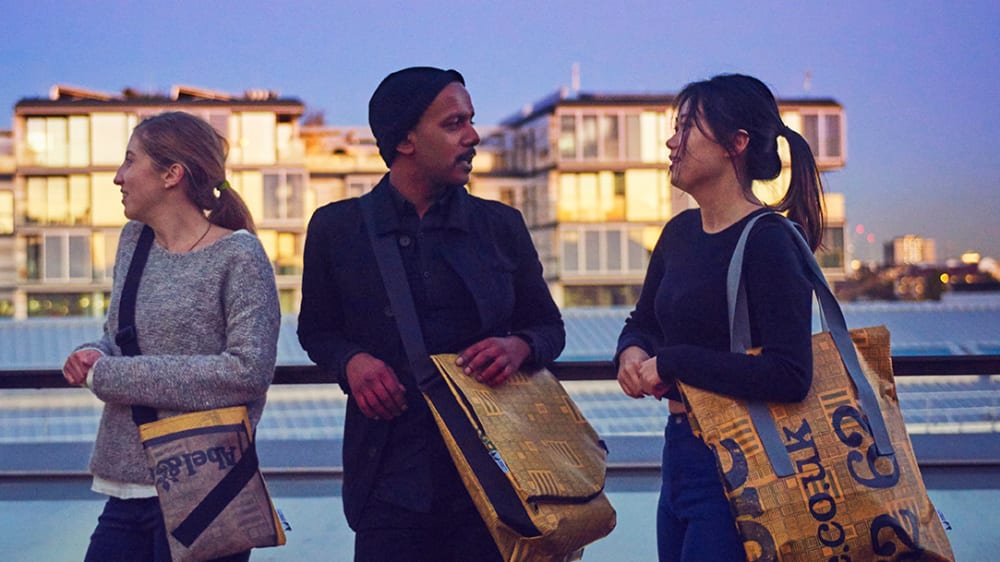How four BA Product Design students created a game to repair the disconnection between prison inmates and their children.
During their year-in-industry, Alexis Bardini, Robyn Veitch, Xiangjie Li and Alexandra Evans worked with the Design Against Crime Research Centre (DACRC), a social-responsive research centre at Central Saint Martins. Their task, during the three-month placement mentored by Lorraine Gamman and Adam Thorpe of DACRC, was to translate a Danish board game designed to re-connect alienated inmates with their families, particularly teenage children, for a UK context.
Alexandra Evans knew that she wanted to work in social design:
You go to design school because you want to make the world a better place. I didn’t want to be creating corporate fast-moving consumer goods – water bottles and packaging, the stuff you use fast and through away.
The year-in-industry (known as Diploma in Professional Studies) offers BA Product Design students the opportunity to take time in between second and third year to experience several real-world projects and setups. “Third year is so important, it’s a huge part of your degree,” says Evans, “this year before gives me the opportunity to have more experience of various industries heading into my final project, graduation and beyond. All experience is good experience, if you hate a particular placement then you know not to head towards that, or if you love something then you can tailor your final year to that.”
Gallery
Having worked with DACRC previously on its Makeright research project introducing design skills to inmates, Evans was keen to continue working with them. To get a full understanding of Captivated, the original game, DACRC funded all four students to travel to Denmark to attend the Designing Playful Interventions for the prison & Probation Service Conference at University of Southern Denmark Kolding, Denmark, where Gamman & Thopre presented their research on UK prisons. The students got to meet their project lead partners, the designers Thomas Markussen and Eva Knutz.
The student group began to understand how different the Danish prison context is from the UK: the Danish prison population is 3,600 while in the UK it’s over 80,000 (the general population of the UK is ten times that of Denmark). Consequently, the structure as well as the furniture of the visiting context of Danish and UK prisons is different. The UK context in which the game could be played is so very different: in Danish prison, visits with family are unobserved in private rooms, whereas in the UK visits are often in large collective rooms with many other families and touching is prohibited. Also a large board game cannot easily be accommodated on some of the tables in UK prisons. In the UK prison, visits are more public, observed constantly (staff are on the lookout for contraband) and often the tables are much smaller, although the fact that there is no consistency regarding rooms and furniture raised another issue for the designers.
Back in the UK, when the student team visited Doncaster, Thameside and Peterborough prisons to speak to inmates and trial game designs, they realised these differences would impact the outcomes. Playing Captivated with inmates, DACRC staff and mentors, the designers realised that the UK game needed to be smaller and quicker. “We had been working on a simpler game, not unlike Jenga,” explains Evans, “and in a spare 10 minutes we got it out. The response was so great, we realised that could be the entire game.”

The result is Bloqs, a tower composed of blocks with each one relating to a question and an allocated point score. As players remove blocks they answer prompts such as “talk about the best birthday you’ve ever had” to claim the points. The game uses the social penetration theory, known as the “onion theory”, to structure prompts so questions have a hierarchy moving from the superficial towards a meaningful conversation.
“It’s aimed at building intimacy,’ says Lorraine Gamman, Director of DACRC, “when you’re in prison, often your memories are based on when you were an active parent outside of prison. This is difficult when your daughter or son is now a teenager and not the child you remember. Playing this game, creates new memories… because players learn new things about each other. The game helps deal with the ‘stuckness’ of prison, which has a terrible cost. It’s often terrifying to be in prison so that some prisoners hide their emotions, they almost turn them off, and some men find it hard to turn them on again. And when you’re in a crowded visiting room with your family, being observed, it might be hard to be the gentle loving parent... You may need to be distracted to drop the hard persona. Using Bloqs the kids are distracted from their apathy and intolerance, and maybe the dads are able to forget they’re in prison for a moment and take off that prison mask and open up to their children and reveal a bit more of themselves.”
One of the decisions that the designers had to make was whether to discuss prison within the game. Talking to inmates, they saw that some were adamant that they wanted to talk about the realities of prison life with their families, while others were just as sure that they didn’t. To accommodate both approaches, the game doesn’t reference prison but incorporates prompts that can be interpreted as such.
Returning to her third year in the autumn, Evans is buoyed by her experience. “I’ve always been quite conscious of human-centred design strategy,” she reflects, “but being able to apply it and see that it works has been great and given me confidence.”
Though the six-month placement is complete, DACRC and their research partners in Denmark, will be looking for further funding to evidence, by research, the findings of Bloqs and, if possible, move the project design closer to finalisation. Unlike Captivated which was created specifically for inmates in Denmark , one of the strengths of Bloqs is that it works in a multitude of situations – its simplicity is its strength.
It’s a way to get people talking, I took it home at Christmas and found of things about my Dad that I never knew before.
Alexandra Evans
